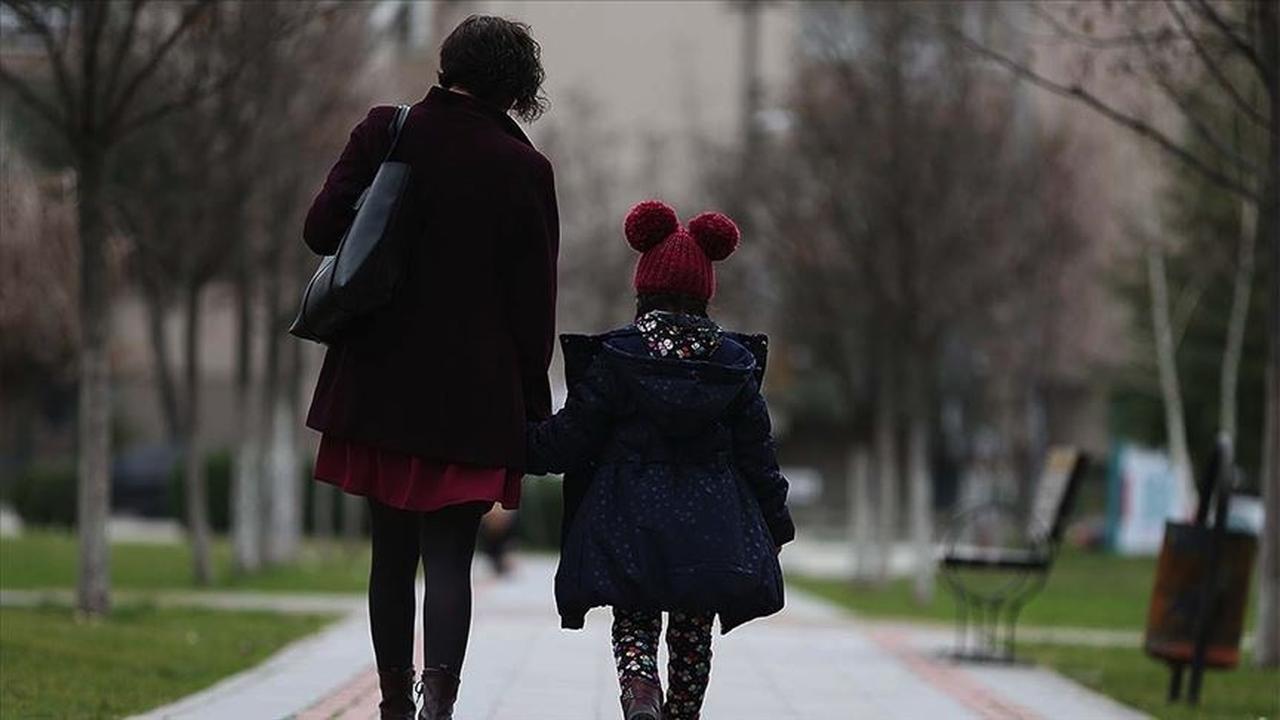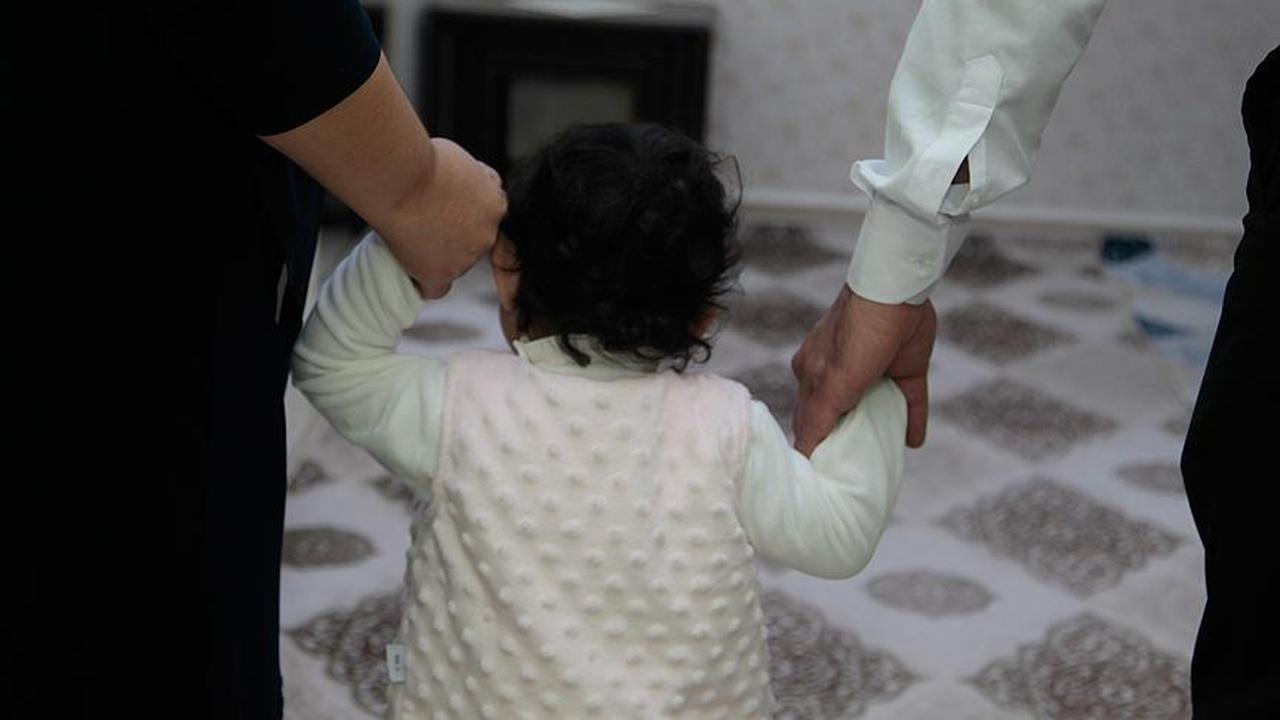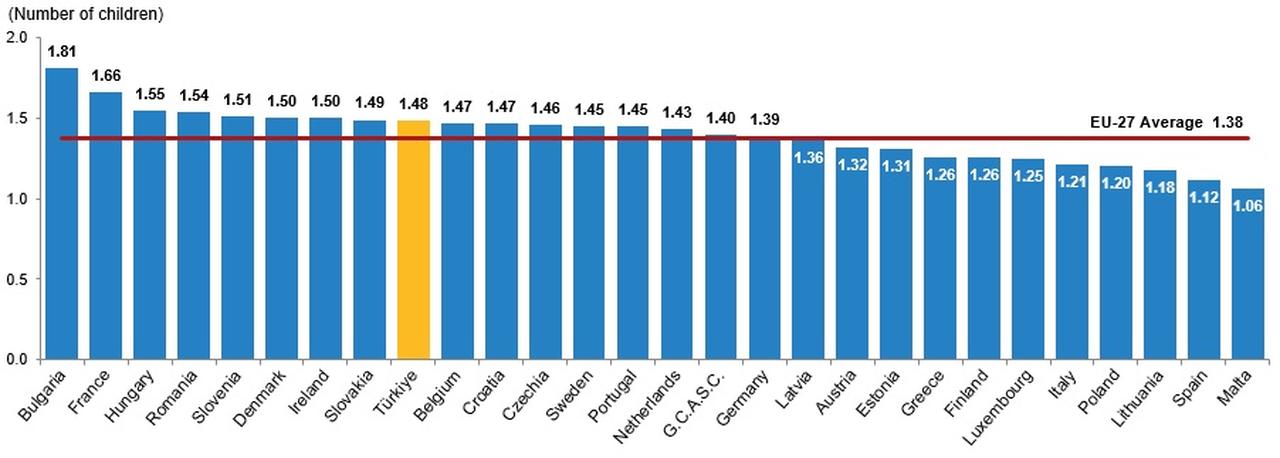
Türkiye has recorded one of the lowest levels of government support for families among the 38 member countries of the Organisation for Economic Co-operation and Development (OECD), amid a growing population decline threat due to declining fertility rates as a result of rising costs of raising a family.
According to the OECD's report on public family benefits, published in February 2025 and based on 2021 data, Türkiye spent less than 1% of its gross domestic product (GDP) on family-related benefits, allocating just 0.5%. With Türkiye's gross domestic product recorded at $1.32 trillion in 2024, this 0.5% allocation would amount to approximately $6.6 billion.
The OECD average stood at 2.33% of GDP, with countries like Iceland and Poland exceeding 3.5%. In contrast, Costa Rica, Mexico, Türkiye, and the United States were positioned at the bottom of the list.
Family benefits in the OECD report include direct cash transfers, services such as childcare, and tax breaks.
Most member countries allocate a larger portion of this spending to cash benefits. In Türkiye's case, cash spending was measured at just 0.3% of GDP, ranking third-lowest among OECD countries, ahead of only Mexico and the United States. The remaining part represented in-kind spending on services and tax benefits.

Türkiye’s Family and Social Services Ministry reported that a total of ₺491.7 billion (approximately $16.3 billion as of June 10) was spent on social aid programs in 2024.
This marks a 61% increase compared to ₺305.9 billion in 2023. However, when measured as a share of GDP, social assistance reached only 1.11% in 2024—its lowest level in the last five years.
This figure compares to 1.24% in 2019, 1.42% in 2020, and 1.74% in 2021, before declining steadily in subsequent years. Despite nominal increases in aid budgets, high inflation and economic expansion have diminished the relative scale of support.
In broader terms, Türkiye’s total social protection expenditures accounted for 10.1% of GDP in 2023, based on data from the Turkish Statistical Institute (TurkStat).
Yet within that total, only 0.7% was directed to family and child-related aid.

The number of households receiving state assistance has fluctuated over recent years. In 2019, 3.28 million households received aid. That figure peaked at 6.63 million in 2020 amid the COVID-19 pandemic.
It then declined to 5.9 million in 2021 and 4.42 million in 2022 and rose again slightly to 4.99 million in 2023. In 2024, it stood at 4.58 million households.
On the other hand, TurkStat also reported that household poverty in Türkiye was calculated at 13.6%.
As inflation, living costs, and limited government support put further pressure on families, the fertility rate in Türkiye has continued to fall. In 2024, the total fertility rate dropped to 1.48, significantly below the 2.10 level required for generational replacement and well beneath the country's earlier levels.

Despite the downward trend, Türkiye’s fertility rate remains above the European Union average, placing it 9th among 27 EU countries.
In response to the demographic concerns, the government declared 2025 as the “Year of the Family” and designated the following decade, from 2026 to 2035, as the “10 Years of Family and Population,” under a long-term strategy aimed at reversing the birth rate decline.